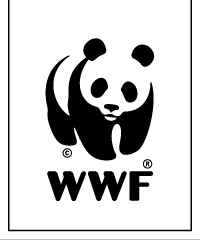Greece going into deep environmental recession
Monday, 15 September 2014
Today, WWF Greece announced its tenth annual review of Greece’s environmental laws and policies. The period covered by this year's report (July 2013 -June 2014), documents the culmination of a systematic process of dismantling Greece’s already poor environmental acquis.
To a large extent, the environmental rollback analysed in the review is the result of Greece’s commitments in the context of the austerity and structural adjustment programme supervised by the European Commission, the International Monetary Fund and the European Central Bank. To an equally large extent though, this loss of important environmental acquis is due to specific Government initiatives. Certain policies introduced by the Ministry of Environment, Energy and Climate Change upon its establishment in 2009, were recently cancelled, reflecting the disappointing rollback.
The environmental policy domains that were mostly affected are the following:
- forest legislation,
- spatial and urban planning legislation,
- legalisation of illegal buildings,
- legal certainty, through a storm of “tailor-made” provisions included in legislation of irrelevant content, aiming to serve specific investment plans.
The economic crisis is used as an excuse for the weakening of environmental legislation and policy. Armed with the policies and legal changes stipulated in the structural adjustment programme (hereinafter referred to as the “Programme”), many ministries have launched efforts to downgrade and alter the environmental legislation relating to their policy domains.
One of the most notable developments of this period was undoubtedly the destructive coastal bill that was announced by the Ministry of Finance in April. The mass mobilization and public reaction caused by this bill showed that the environment remains a priority for many citizens and that the crisis cannot be used as an excuse for the loss of natural capital.
“This year’s report is clear: the environment is paying a heavy price of the crisis in Greece. With support from the EU, Greece is losing a “good” crisis that should be treated as a signal that the past development model is flawed and needs to be scrapped. This should be the ripe time for Greece to find its way towards a living and sustainable economy, based on its natural capital”, said Theodota Nantsou, Head of Policy at WWF Greece.
WWF has repeatedly addressed the Troika supervising the Greek economic programme calling for change of course towards a truly sustainable economic recovery that does not waste the country’s unique natural capital.
“We call on the new European Commission and particularly President –elect Jean Claude Juncker, to honour its role as Guardian of the Treaties and undertake a vital and urgent revision of the policies and conditions of the economic adjustment programme. The vision needs to be a long-term sustainable and living economy for Greece and not a return to the unsustainable past”, states Demetres Karavellas, WWF Greece’s Director.
See the English summary of the review here.
Share this



